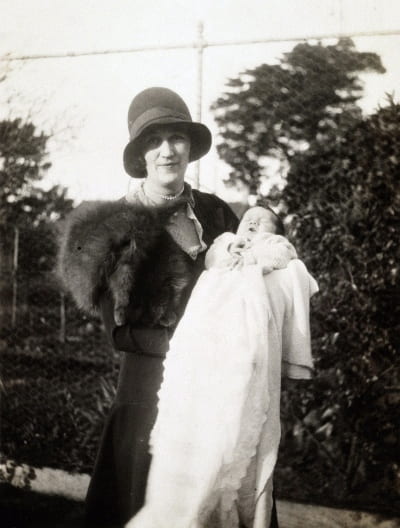
The Una Fraser Collection

The Una Fraser collection in the University of Melbourne Archives includes two large scrapbooks of various ephemera – newspaper cut-outs, photos, letters – collected by Una Fraser, Malcolm Fraser’s mother, during the 1950s and 60s. Carefully clipped and pasted into the scrapbook, with dates noted by hand, they convey the sense of personal and intimate links to the future Prime Minister (1975-1983). Whilst the majority of these items relate to Fraser’s political life, there are also a number of other items related to the Fraser family, including family photographs and clippings from local newspapers, which give a window into rural life in Australia in the mid-twentieth century.
From this collection and in this context, doctoral students have each chosen a different document from the early stages of Malcolm Fraser’s career, particularly those which shed some insight into his sometimes contentious political journey.
In Fraser’s letter to the householder, Anton Donohoe-Marque examines a typed, hand-signed campaign letter from Fraser to the constituents of Wannon, a seat in Western Victoria. In it, Fraser champions the values of individualism and egalitarianism he developed studying political philosophy at Oxford and so makes an appeal to the ‘bushman ethos’ that would likely resonate in the rural communities of Wannon.
In ‘Fraser’s Political Football‘, Adam Eldridge explores another typed letter from Fraser to the Melbourne daily newspaper, The Sun. This document takes issue with the Melbourne-based Sun newspaper for its distortions and false attributions, and unfortunately seems to reinforce the caricature of Fraser as a humourless figure, quick to combat the media. However, the scrapbook reveals that the Sun letter followed other letters published in regional newspapers which show young Fraser’s media savvy as well as a rarely seen self-deprecating aspect to his character.
In ‘Bread and Butter Issues’, Timo Eckhardt looks at two articles from Fraser’s successful 1955 campaign for Wannon. First, Fraser seeks to appeal to the people of Wannon by extolling the virtues of the thrifty Menzies government’s social policies and secondly, he shows his passion for international politics and warns against the ALP’s closeness to communism.
Finally, in ‘Fraser meets Digger’, Pauline Georgelin considers a photo of Fraser as Minister for the Army meeting a digger in South Vietnam in July 1967. The photo provides yet another glimpse into Fraser’s lifelong passion for international politics and is particularly interesting in light of the 56,000 Vietnamese immigrants welcomed to Australia by his government during the 1970s.
Leave a Reply